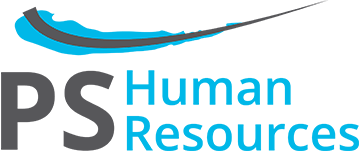Sickness absence is a common challenge faced by businesses of all sizes. Whether it’s short-term illnesses, long-term health issues, or recurring absenteeism, managing sickness absence effectively is crucial for maintaining productivity, employee wellbeing, and overall business operations. For small and medium-sized enterprises (SMEs), managing sickness absence can be particularly challenging due to limited HR resources and time.
At PS Human Resources Ltd, we specialize in providing outsourced HR support for businesses like yours. In this blog, we’ll explore best practices for managing sickness absence and how you can implement a proactive approach that benefits both your employees and your business.
Create a Clear Sickness Absence Policy
Challenge: Without a clear policy, managing sickness absence can lead to inconsistencies, misunderstandings, and potential legal risks.
Solution: A comprehensive sickness absence policy is essential for setting clear expectations from the outset. This policy should outline:
- Notification procedures: How employees should report their absence (e.g., calling in sick, notifying HR within a set timeframe).
- Sick pay: The levels of pay employees are entitled to during sickness absence, whether it’s statutory sick pay (SSP) or company-provided sick pay.
- Return-to-work procedures: The steps an employee should take before returning to work, including providing a doctor’s note or attending a return-to-work meeting.
- Long-term absence management: A process for supporting employees with long-term illnesses and ensuring compliance with legal requirements, such as the Equality Act 2010.
By having a clear and consistent policy, you ensure that everyone in your business understands the expectations and processes for reporting and managing sickness absence. PS Human Resources Ltd can help you create or refine your sickness absence policy to ensure its legally compliant and aligns with your business goals.
Monitor and Track Sickness Absence
Challenge: Many businesses struggle to track sickness absence effectively, which can result in missed patterns, inconsistent follow-ups, and a lack of understanding about the root causes.
Solution: Consistently tracking employee sickness is crucial for spotting trends and addressing underlying issues. This includes:
- Recording all sick days and reasons for absence (with respect for privacy).
- Identifying patterns of frequent short-term sickness or long-term absence.
- Noting any seasonal fluctuations (e.g., flu season) and addressing these proactively.
At PS Human Resources Ltd, we recommend using HR software solutions like Breathe HR to streamline sickness absence tracking. By automating the process, you can quickly access data on absenteeism, identify trends, and implement strategies to reduce future absenteeism.
Conduct Return-to-Work Interviews
Challenge: Without a structured return-to-work process, employees may not feel fully supported when returning after a sickness absence, and businesses can miss the opportunity to address issues early on.
Solution: A return-to-work interview is a key part of managing sickness absence. When an employee returns to work after an absence, it’s essential to have a meeting to:
- Welcome them back and check on their health and wellbeing.
- Understand the reason for their absence (if appropriate and necessary).
- Discuss any adjustments or accommodations needed to support their return.
- Reinforce the company’s sickness absence policy.
Return-to-work interviews provide a clear opportunity to maintain communication with the employee, address concerns, and prevent further absence. These interviews also act as a deterrent for frequent absenteeism, as employees understand that their absence will be monitored closely.
At PS Human Resources Ltd, we can help you implement a return-to-work interview process that aligns with your business and ensures the welfare of your employees.
Offer Support for Employees with Long-Term Illness
Challenge: Managing long-term sickness absence can be particularly challenging, as it requires ongoing support and understanding while balancing business needs.
Solution: Employees experiencing long-term illness often need additional support to return to work or remain productive. Here’s how you can help:
- Maintain regular contact: Reach out to employees on long-term sick leave to check in on their progress and offer support.
- Adjust work duties: Where possible, offer alternative duties or flexible working arrangements to help employees return to work gradually.
- Seek professional advice: Encourage employees to provide medical certificates and seek advice from occupational health professionals to help guide your decision-making.
PS Human Resources Ltd can assist in managing long-term sickness absence by providing guidance on legal requirements (such as disability accommodations) and offering practical solutions that support both the employee and the business. We can also help you implement strategies for managing ongoing sickness absence and ensuring compliance with employment laws.
Encourage a Positive Work Environment and Wellbeing Support
Challenge: Employees may take sickness leave due to stress, burnout, or mental health issues, which can be difficult to address if the work environment is not supportive.
Solution: Proactively fostering a positive work culture is essential in reducing sickness absence and supporting employee wellbeing. Here are some ways you can create a healthier work environment:
- Promote work-life balance: Encourage employees to take breaks, manage workloads, and take holidays to prevent burnout.
- Offer mental health support: Provide access to Employee Assistance Programs (EAPs), mental health resources, and a supportive workplace culture.
- Implement flexible working: Flexible hours or remote working can reduce stress and improve overall wellbeing.
By addressing the root causes of sickness absence, such as stress or poor mental health, you not only reduce absenteeism but also show employees that you care about their wellbeing. PS Human Resources Ltd can help you create an employee wellbeing program and implement strategies that prioritize health and work-life balance.
Follow-Up and Address Persistent Absenteeism
Challenge: Chronic or frequent absenteeism can disrupt productivity and cause tension within the workforce.
Solution: If an employee’s sickness absence is becoming a regular occurrence, it’s important to address it in a constructive and consistent manner. Steps you can take include:
- Investigating the root cause: Have a discussion with the employee to understand if there are underlying health issues or personal circumstances affecting their attendance.
- Providing support: Consider if workplace adjustments (such as changes to hours or duties) might help reduce absenteeism.
- Implementing disciplinary measures: If there’s no valid reason for persistent absenteeism, you may need to explore formal disciplinary processes in line with your HR policy.
At PS Human Resources Ltd, we guide businesses on how to manage persistent absenteeism by offering practical solutions and ensuring legal compliance. We also help you implement fair and consistent processes to address absenteeism in a way that maintains employee morale while protecting the business.
Managing sickness absence effectively requires a combination of clear policies, proactive communication, support for employee wellbeing, and consistent tracking. At PS Human Resources Ltd, we specialize in providing tailored HR solutions that help businesses like yours manage sickness absence with ease. By implementing best practices, such as return-to-work interviews, offering support for long-term illness, and tracking absenteeism effectively, you can create a more productive and positive workplace.
If you need help managing sickness absence or developing an effective absence management strategy, PS Human Resources Ltd is here to support you. Contact us today to learn more about our HR services and how we can help you manage sickness absence in your workforce effectively.
Need Support with Sickness Absence Management?
Contact PS Human Resources Ltd for expert advice and tailored HR solutions to support your business.
Visit: www.pshumanresources.co.uk





